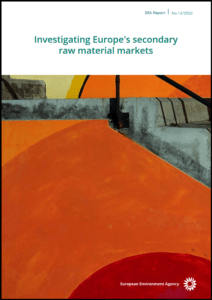 A new report of the European Environment Agency shed a light on secondary raw material (SRM) markets functionality, which are key enablers of the circular economy and can contribute to better resource efficiency whilst reducing environmental pressure and pollution.
A new report of the European Environment Agency shed a light on secondary raw material (SRM) markets functionality, which are key enablers of the circular economy and can contribute to better resource efficiency whilst reducing environmental pressure and pollution.
The report develops an assessment framework for eight different waste streams targeted by EU policy, including biowaste, to explain the features and functionality of existing SRM markets and the barriers preventing these markets to reach their full potential. Different criteria have been considered for the evaluation, including among others the market size, demand-supply interactions, economic drivers, industrial capacity for recycling and product standardisation.
According to EEA findings, the market for secondary fertilisers and soil improvers derived from biowaste does not fit the criteria to be defined as well-functioning market, with compost just fulfilling the criterion related to quality management and standardisation (ECN-QAS) and only partly the one related to industrial capacity. Proposed solutions to overcome barriers on both supply and demand sides encompass the extension of binding recycling targets for the biowaste stream, as well as economic incentives (VAT reduction) or the introduction of an environmental tax on primary materials to reduce cost disadvantage of SRMs.
To access the complete report at a glance click here.
